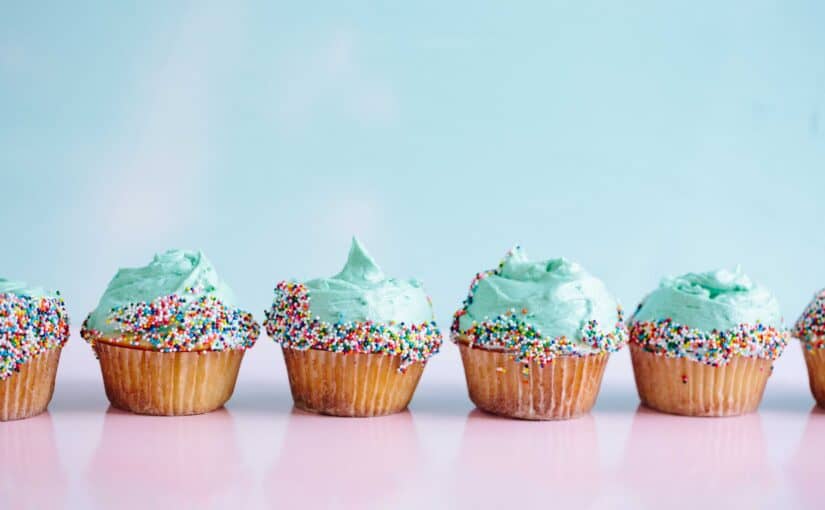Do you “sneak” a piece or two (or many more) of candy at Halloween? Or a slice of cake at a birthday party? Does the desire for a late-night snack turn into a spiral of emotional eating and overeating? Guilt and shame around eating something we feel we shouldn’t prevents us from actually enjoying the item we desire. To make matters worse, guilt and shame can then drive additional food cravings. These “secondary cravings” are no longer about the original simple desire to eat the food, but instead use food to numb the uncomfortable feelings. This pattern of an adversarial relationship with food can be a hard to break!
There doesn’t need to be shame around eating a treat!
Instead of “sneaking” the food, could you decide you wanted to have it? Can you imagine taking a piece of candy, sitting down at the table, eating it over 2-3 bites, and enjoying each bite?
Today’s post in the series co-wrote by Dr. Lynn Stiff and Dr. Melissa Welby, will focus on a common struggle many people face on their healthy eating and body positivity journey: managing food cravings and shame.
Food Cravings meet Shame
Craving:
People crave food for all sorts of reasons. When we practice intuitive eating our bodies can let us know what it needs and ask us to give it something it may feel short on. Obviously, people crave food simply because they are hungry, but as we know, food is also used to avoid emotions.
Shame:
Shame is an awful feeling and it’s understandable why people will want to make it go away as fast as possible. It is a feeling that often gets mixed in with a side of low self-worth and plenty of self-hatred.
Shame around eating + food used for coping = the perfect storm
If food is used as a coping strategy for discomfort, shame can lead to emotional eating or binge eating. Shame can be the glue keeping people stuck in the adversarial relationship with food.
Cravings are cravings until shame kicks in
Self-compassion is lost when someone is stuck in the cycle of shame and eating for comfort. Instead, it can feel like an all-out cycle of war full of self-hatred and self-punishment. If either shame or using food for coping is eliminated, the storm will dissipate and healing can begin. Cravings will simply be cravings.
When shame is removed, the negative coping strategies that attempt to drown out shame aren’t needed. Binge eating, mindless eating, and emotional eating can be eliminated and self-loathing can stop. If shame is felt, but the coping strategies are shifted to healthier outlets, the power of the storm is reduced.
Without shame clouding thoughts, a person can be in tune with their bodies and mindfully enjoy the treat they crave.
Shame and coping mechanisms
Imagine eating a particular food you want but think you “shouldn’t” eat. Shame might quickly set in. BUT instead of reacting to the shame and using food for comfort, positive coping strategies are tried.
Instead of reacting to shame, you could choose a positive coping strategy instead
Positive coping strategies can be anything that helps you process emotion in a way that doesn’t avoid, stuff it, or cause you harm. What works in a situation will be different for each person.
What if you dealt with that hard emotion head-on?
To learn more about coping strategies, Dr. Welby made an informational worksheet that will help you take a look at your own go-to reactions and identify triggers for them. Included is a list of 28 additional coping strategies that you can try!
How do you manage food cravings when they come up?
Leave your thoughts and comments below!
Lynn Stiff, MD, RD, MS is a board-certified family medicine physician and registered dietitian focused on helping others proactively achieve health and wellness. Through her years of practice, she has come to realize that nutrition is not just "calories in equal calories out" and that many simplistic weight-loss strategies cause more harm than good. She is passionate about helping women reject diet culture and learn to love themselves in their own skin, empowering women to dig deep inside and reframe the way they see food, exercise, themselves, and the world in which they live. She is an advocate for intuitive, mindful eating and helping women focus on their value and purpose without regard to the numbers on the scale. Her company is Nutrition Health Life, LLC.




